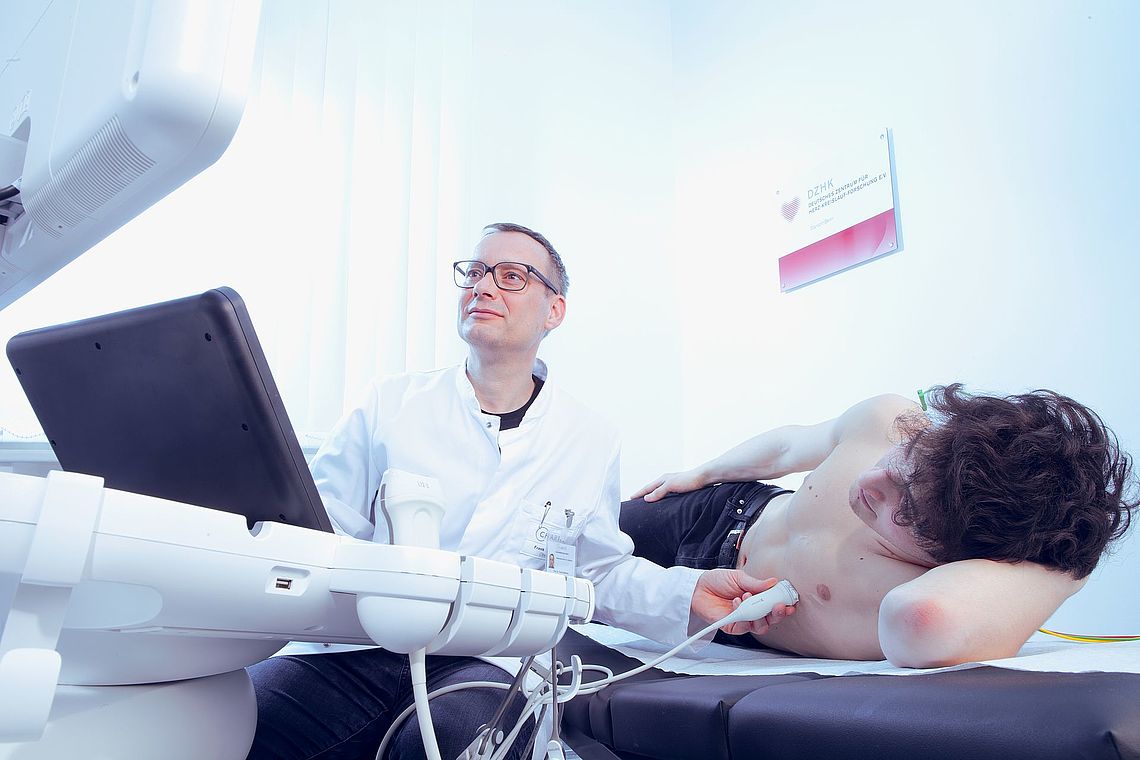Background and aim
For many patients with terminal cardiac insufficiency, a heart transplantation is the only chance of survival. However, there are not enough donor hearts while the number of people who require a new heart is rising. Patients also receive an artificial heart implantation, a so-called left ventricular assist device, in order to bridge the waiting period until transplantation, which is also increasingly used as a long-term solution. The device is an electrical pump that is placed directly next to the heart and directs blood from the left ventricle into the aorta.
Immediately after the implantation of an artificial heart, patients are in an extremely poor physical state. The patient’s condition does indeed improve during the first three months following the operation, but then reaches a steady state in which the condition stabilises at a constant but usually low level. Additionally, 30 to 40 percent of patients show symptoms of Depression.
The DZHK study Ex-VAD aims at examining whether patients with an artificial heart would benefit from physical exercise. Studies in patients with chronic cardiac insufficiency have shown how much of a positive effect such a workout has on physical performance and thus also on quality of life. The long-term goal is to strengthen the individual’s own heart in such a way that the artificial heart can be removed after a certain period of time.
Trial design
Ex-VAD is a proof-of-concept prospective, randomised and controlled interventional clinical study. The primary objective is to evaluate whether exercise training can improve the functional capacity in patients with an artificial heart.
If the positive expectations of the scientists are confirmed, large-scale multi-centre studies must substantiate the effects of physical exercise before it can find its way into the treatment guidelines of this patient group.


